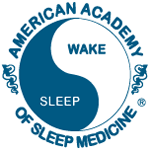 A new study identified DNA from a virus in 67 percent of people with chronic fatigue syndrome.
A new study identified DNA from a virus in 67 percent of people with chronic fatigue syndrome.The “XMRV” virus was found in the blood of 68 out of 101 CFS patients; it was found in only eight of 218 healthy controls. The same virus has been linked to prostate cancer, Reuters reports.
“I think this establishes what had always been considered a psychiatric disease as an infectious disease,” study co-author Dr. Judy Mikovits told the New York Times.
The CDC reports that CFS involves an “all-encompassing” fatigue that is severe and incapacitating. The fatigue fails to improve with bed rest; it persists for six months or more.
Another common symptom is unrefreshing sleep. This can make it hard to distinguish CFS from a group of sleep disorders known as “hypersomnias.”
These sleep disorders all involve excessive daytime sleepiness. This sleepiness is not caused by disturbed sleep or a lack of sleep.
Narcolepsy may be the most well-known type of hypersomnia. It involves repeated episodes of daytime naps; sudden and irresistible “sleep attacks” may occur in unusual situations. Research suggests that narcolepsy is an autoimmune disorder.
Sleep paralysis and hallucinations also are common in people with narcolepsy. Another common symptom is “cataplexy.” This occurs when the leg, arm or face muscles suddenly become weak. It is normally caused by strong emotions.
People with idiopathic hypersomnia with long sleep time sleep for 10 hours or more. They also take long naps for three hours of more. Despite all of this sleep, they still feel unrefreshed.
Idiopathic hypersomnia also occurs without long sleep time. In this case you sleep for about six to 10 hours and take long, unrefreshing naps.
Recurrent hypersomnia involves repeated episodes of excessive daytime sleepiness. These may last for a few days or several weeks. You may sleep for 16 to 18 hours per day; then you sleep for normal lengths of time after an episode ends.
A common complaint of people with hypersomnia is, “I can’t wake up in the morning.” Even multiple alarm clocks may fail to wake you up. This topic has generated more than 175 replies in the discussion forum at SleepEducation.com.
Severe hypersomnia can make it difficult for you to function normally during the day; as a result your work or school performance may suffer.







No comments:
Post a Comment